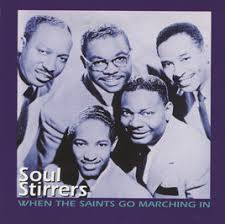By Kennedy Brooks
Jubilee Quartets originated in the mid 1800s, where most started in churches and barbershops. The first two decades of the twentieth century was the form of the Jubilee Quartets. In 1905, the Fisk Jubilee quartet became popular and was the model for African American jubilee quartets in the south. These early gospel-sounding quartets naturally maintained distinctive sounds, mainly according to their geographical location and personnel, they all stayed united based on certain jubilee styles of singing. Most quartets featured at least four male voices singing in close harmonies. Although it is a musical composition or ensemble of four voices or instruments, an African American quartet is not determined by the size of the group, but by the number of designated harmony parts. Since Baptist Churches did not allow for instruments where many quartets performed, quartets usually performed without any instrumental accompaniment.
While older groups, such as the Fisk Jubilee Quartets, attempted to constrain the emotional effects of their performance and more likely using proper diction and melodic precision over smooth ornamentation and danceable grooves. Post World War I quartets began to sing hymns and spirituals with stronger rhythmic emphasis, accenting the pulse with vocal inflections and through subtle body movements side to side. These newer singers also increasingly produced sound from the back, rather than the front of their mouths, for a more earthy tone.The lyrics of this jubilee songs were often narrative in character, relating to biblical parables or recounting the experience of the Old Testament.
In the 1920s, the Great Depression hindered on quartets’ success. Even though, the Golden Gate Quartets became what is known as the “classic” jubilee quartet. They used jazz-influenced rhythmic syncopation and vocal imitations of musical instruments. This is also a time where radio broadcasting became crucial in popularizing quartets outside of churches. Quartets such as the Soul Stirrers and the Swan Silvertones also became popular during this time period. Other musical influences to note are the Mills Brothers, Zion Harmonizers, and Heavenly Gospel Singers. Quartets ended up having a lasting impact on future genres such as R&B, Pop, and Rock N’ Roll. Female quartets also began to form. I believe like other genres of gospel singing, quartet singing evolves with newer audiences while sustaining links to its treasured past.


[embedyt] https://www.youtube.com/watch?v=VmizCScGLmY[/embedyt]

